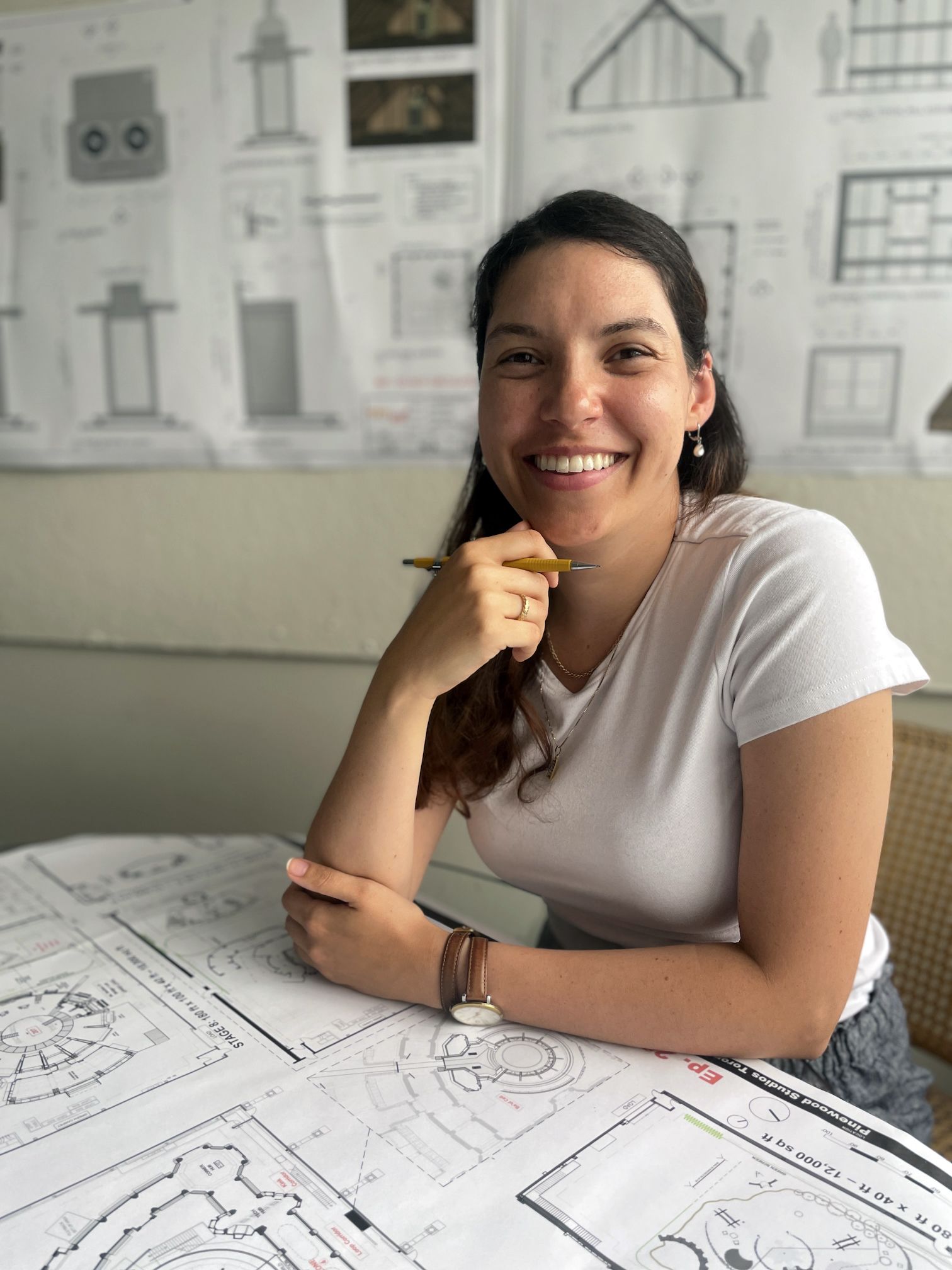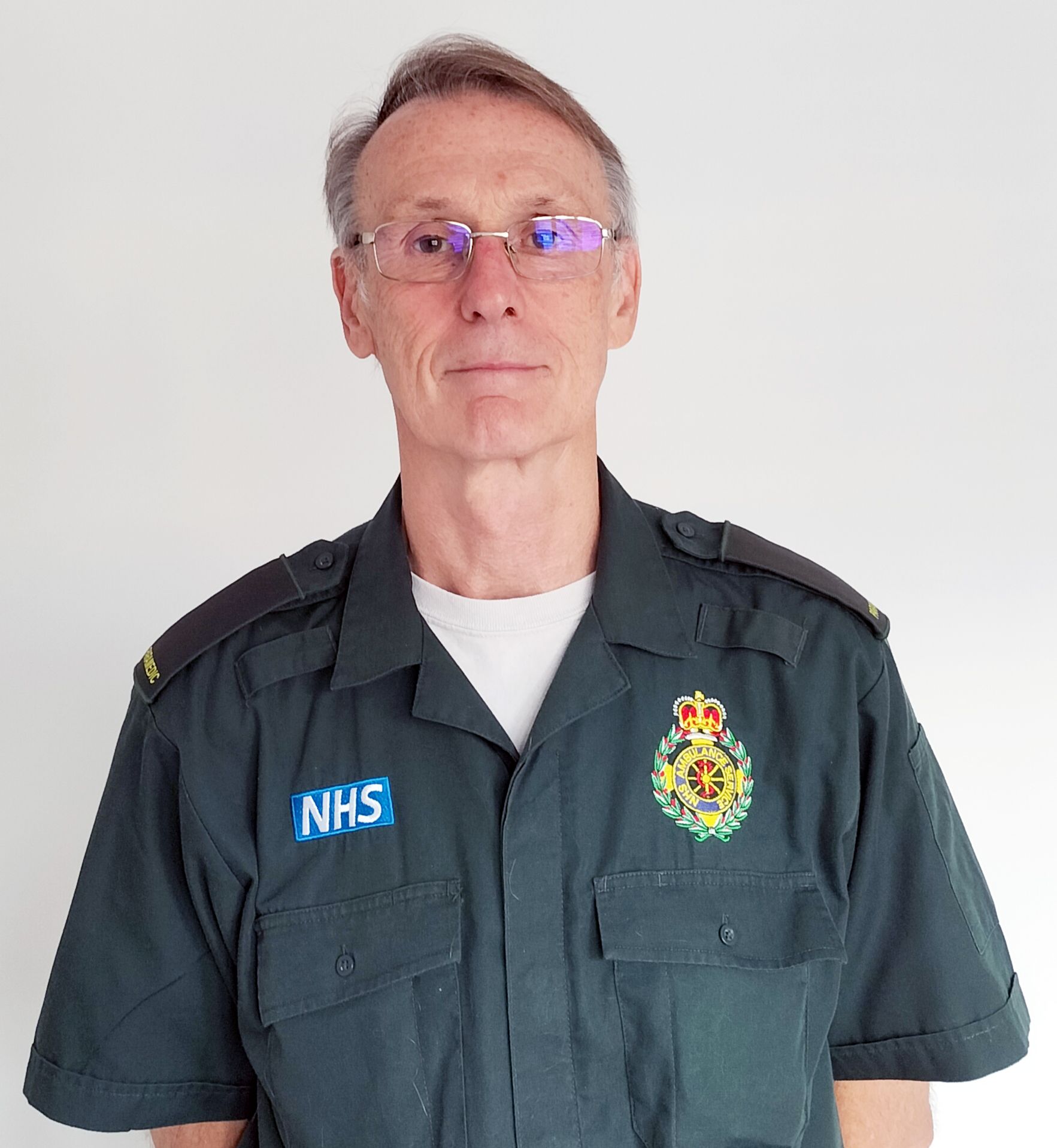Alumni news

Supporting organ transplants
Piano teacher, choirmaster and rock musician Mark Deeks (PhD Music 2016) turned Huddersfield Town Hall into a heavy metal venue as part of a bid to save Britain’s pipe organs. Around 25 churches close each year in the UK, meaning that many of these majestic old instruments are scrapped.
Campaigners Pipe Up for Pipe Organs aim to move threatened organs into new spaces and preserve others which have become neglected. Mark's metal band Aro was accompanied by Leeds Diocese organist David Pipe on Huddersfield’s 1860 instrument during a concert organised by the campaign.
Mark said: “I was really delighted to be able to combine doom metal with the power of the pipe organ. To get more than 300 people to come out on a Monday night to witness the experience was fantastic.”
Royal recognition
Cancer pioneer – Sir Steve Jackson
Cancer pioneer – Sir Steve Jackson
Biochemist and entrepreneur Professor Sir Steve Jackson (Biochemistry 1983) was knighted in the King's Birthday Honours in the summer. Professor Jackson, of the University of Cambridge and Cancer Research UK’s Cambridge Institute, helped develop a so-called wonder drug called Olaparib. The 'synthetic lethality' drug exploits a genetic weakness in heritable cancers which kills cancer cells, but leaves healthy ones unharmed.
Olaparib has been used to treat 75,000 patients worldwide with ovarian, breast, pancreatic and prostate cancers.
Speaking on a visit to Leeds, Professor Jackson said: “It was here that I learned the nitty gritty details of genetics, chemistry, biochemistry and biology. Those principles have provided the grounding for my academic career ever since.”
Alumni are honoured
Two Leeds alumni have been recognised with honorary degrees from the University.
Anita Rani (Broadcasting 1999) and Professor Ondrej Krivanek (Physics 1971) were honoured with the prestigious awards in the University’s Great Hall during graduation fortnight in July.
Honorary graduate - Anita Rani
Honorary graduate - Anita Rani
Anita Rani has progressed from being a part-time broadcaster on Leeds Student Radio to presenting BBC TV shows such as Countryfile. She received an Honorary Doctor of Laws.
Honorary graduate - Professor Ondrej Krivanek
Honorary graduate - Professor Ondrej Krivanek
Electron microscopes developed and manufactured by Professor Krivanek’s team at Nion Co in Seattle are used in research labs around the world. He received an Honorary Doctorate of Science.
Listen to our Leeds Voices podcast episode with Anita and Ondrej.
Constructing a success
Congratulations to Natasha Abbas (Civil Engineering with Construction Management 2003; MSc International Construction Management 2011), the co-founder of North 51 Consulting, who was named Project Manager of the Year in the Design Middle East Awards 2022. Presented in Dubai, the awards celebrate the best in the region’s architecture and design industry, and Natasha was honoured for her work on the EL&N café in the city's International Finance Centre.
North 51 was named Enterprise Company of the Year at the Middle East Consultant Awards 2022 and Natasha has gone on to deliver EL&N’s second flagship café in the UAE’s capital Abu Dhabi.

Doctor is an inspiration to others
A Syrian refugee has finally graduated as a doctor – ten years after she first began studying in her home country.
Loubna El Saboni (Medicine 2023) abandoned her studies as she and her family fled Syria for their safety. She was later accepted to continue her studies at Leeds, while raising her daughter, who is now three.
She says: “Five years ago, the University of Leeds gave me the opportunity to be heard, and offered a glimmer of hope that I might be able to achieve my dream of being a doctor.
“I’m relieved to finally graduate and start my career as a doctor. I’ve lived so much of my life as a medical student, I’m excited to know what it’s like on the other side.
“There were times I thought I wouldn’t get to this point. I’ve been through some real challenges – tackling a medical degree is not an easy task, let alone with a daughter and after leaving everything behind in Syria and starting again here in the UK.
“I hope my experience paves the way for other people to know that no matter what their background, they can have a second chance at achieving what they want to. And I hope I’ve given my daughter a strong female example and taught her never to give up on her dreams."
After a total of ten years at medical school, Loubna has taken up a position as a Foundation Year One doctor in the East Cheshire Trust.
Louise Gazeley, Academic Sub-Dean and Clinical Lecturer at the School of Medicine, said: “Loubna is a fantastic example of a student showing determination and perseverance to achieve her dream, overcoming so many obstacles that came her way during the already challenging experience of medical school.
“Her story is truly inspirational and we’re so proud that she’s a part of our University of Leeds community.”
Loubna El Saboni (Medicine 2023) abandoned her studies as she and her family fled Syria for their safety.
Loubna El Saboni (Medicine 2023) abandoned her studies as she and her family fled Syria for their safety.
Twins' frontline role - Marineo (left) and Dhionis Llanaj
Twins' frontline role - Marineo (left) and Dhionis Llanaj
Students’ crisis response
During their studies, nurses Dhionis and Marineo Llanaj worked on intensive care, saving the lives of Covid-19 patients.
The twins delivered critical care in Leeds hospitals for countless patients and families: “It was difficult,” says Dhionis (Medical Sciences 2022). “We were treating Covid-19 patients when the virus was an unknown entity – we didn’t know what it might do to us. The hardest thing was that relatives of patients couldn’t see their loved ones because of Covid restrictions.”
When the twins were two years old, the family fled civil war in Albania to Greece. It was there that a road traffic incident set Dhionis and Marineo’s career paths: “Our older brother was involved in a bicycle accident. It left him with disabilities and we spent a lot of time in hospitals. I watched the nurses, doctors and parents look after him.
“It inspired me to save lives and look after people,” says Dhionis. “Even as a child, I knew that was what I wanted to become. I worked night shifts to help finance my degree; at times it felt too much, but I was glad to be there to look after patients.”
The twins are continuing to contribute to the NHS in Leeds – Dhionis as an education practitioner at the Leeds Teaching Hospitals NHS Trust, Marineo as an oncology research nurse.
Dhionis was a finalist in the International alumni of the year category of the 2023 PIEoneer Awards which honour achievements across the global education industry.
Onto the frontline
After a varied career in teaching and IT, Peter Watters (Pharmacology 1980) has retrained to become a frontline paramedic at the age of 64.
His passion for healthcare and medicine began whilst studying pharmacology at Leeds. “There were fantastic facilities and the lecturers were experts in their fields,” Peter recalled. “We were in the old medical school at first, and then we moved into the new one – the Worsley building, which is probably considered old now.”
After graduating, he was unsure whether to commit to a career in pharmacology, so he opted for a PGCE. He became a teacher, before switching to a role in IT. “My career has come down to opportunity,” he said. “You put the pieces in place and the opportunities often present themselves. I enjoyed teaching, but when the chance came to do something new again, I took it.”
It is an approach that has taken him around the world. A teaching role in North Carolina, USA, followed, before he worked as the director of IT at a school in Surrey. He later moved to the Lake District and began a holiday cottage business. “But with that one, I was at home all day cleaning,” he said. “I started to go stir crazy, I was used to socialising.
“I joined St John’s Ambulance because my daughters were a part of it, and I was dropping them off and picking them up anyway. It brought back all the memories of pharmacology at Leeds. I became emergency transport on events, which is when I saw an advert for emergency medical technicians.” After seven years in that role, an apprenticeship opportunity led to him study as a paramedic at Carlisle University.
Once qualified, Peter took on greater responsibilities for patient management – far beyond what people typically expect. “It’s a broad remit – people often see the paramedic role as putting a patient in an ambulance and moving on, but it's changing. You’ve got to set patients on the right care pathway and make patient management decisions, and it’s a qualification that can see you working with the air ambulance, in care homes, in GP surgeries or in A&E.
“We’re expected to keep up to speed with literature around techniques, drugs, and patient management and revise protocols accordingly. We become researchers in our own right. That builds upon a lot of what I did at Leeds into treatments and the way they work.”
Where his Leeds studies might help prepare him for knowledge-based aspects of the role, the emotional side draws on a different skillset – particularly in a trauma scenario. “It’s a challenge, but you’ve got to detach yourself from what you’re seeing and the emotions of people on the scene. You step back and follow your protocols to help those patients. It might hit you afterwards, but at the time you can't get distracted. We do have a good structure in place to deal with psychological issues afterwards.”
And it is in those times of stress that Peter’s life experiences can play a part. “I suppose people look at you differently as an older person,” Peter said. “They see you as being more knowledgeable, a bit more of a calming influence, perhaps.
“If anyone is considering a career change, if you’re healthy enough and still have the thirst for knowledge, there’s nothing that should stop you,” he says. “I come home at the end of every day knowing I’ve made someone’s life better – and longer, in some instances.”
Peter Watters (Pharmacology 1980) has retrained to become a frontline paramedic at the age of 64.
Peter Watters (Pharmacology 1980) has retrained to become a frontline paramedic at the age of 64.
Peter graduated from Leeds in 1980
Peter graduated from Leeds in 1980
Setting the stage
With credits including Mrs. America, Star Trek: Discovery and Chucky to her name, Canadian set designer Gabriella Douglas (JYA Civil Engineering 2013) is in high demand with production companies such as Disney, Amazon and Apple TV+.
Gabriella came to Leeds on a semester abroad programme from her architecture degree at Carleton University in Ottawa: “I knew I wanted to come to England, but it turned out that Leeds was a sublime choice. When a lot of people think of England, they just think about London, but I loved the area. The University made a lot of opportunities for students to meet each other and go on visits to places like York and Liverpool to name a few. It was the best possible time and I made the most of it.
“Being Canadian, I was used to the cold, though it's a different kind of cold in Canada; Yorkshire’s cold is wetter!”
It was at only the end of her degree that Gabriella realised she didn’t want to work for an architecture firm: “I hadn't fallen out of love with design and I’ve always loved film. My tutor told me that a lot of set designers were architecture graduates. I just didn't know that. I wrote to a lot of people and eventually got to work on my first film and haven't looked back since. It ticks all the boxes for me – creative responsibility, collaboration and myriad skills, with many different minds working on a project.”
When asked which work she’s most proud of, Gabriella chooses two: “Someone once told me that on any production, you might have a fantastic team, a fantastic project or be doing fantastic design. You'd only normally get two out of the three, and rarely get all three together.
“But there are a couple of times where it's happened to me. I'm enormously proud of my work on FX’s Mrs. America – the scripts, the people, everything was A1. And then I worked on the last two seasons of SEE for Apple TV+ where I grew enormously as a set designer and gained lasting relationships with the art department.
“My best days in architecture pale into insignificance against my best days in film. And I'm helping to make magic.”

Thomas upholds tradition
The three degrees – Thomas Walsh is flanked by father Matthew and grandfather David
The three degrees – Thomas Walsh is flanked by father Matthew and grandfather David
When Thomas Walsh (International History and Politics 2023) walked across the stage to graduate this summer, it was 94 years since his great grandfather Percy Walsh (Law 1929) did the same. Since then, grandfather David (Law 1958) and father Matthew International History and Politics 1992) gained degrees from Leeds as did Thomas’s mother, Nicole (French and Spanish 1992). All three were able to attend Thomas's graduation in the Great Hall.
Elected to office
Nawabzada Jamali (Law 2016) has been elected as a First District Chairman of the newly-established district of Usta Muhammad in Pakistan’s Balochistan province. “It was an honour for me to study at Leeds,” he said. “The knowledge I gained there has helped me reach this post.”
Brontë to Barbie
Following her starring film role as the author Emily Brontë, the latest big screen outing for Emma Mackey (English 2016) saw her as the Nobel Prizewinning Physicist Barbie in the smash comedy hit Barbie – the highest grossing movie of 2023.
Since coming to public attention in TV’s Sex Education, Mackey’s career has also included the TV movie The Winter Lake, and big screen films Eiffel and Death on the Nile.
Canon’s Royal role
The Reverend Canon Keith Farrow (Theology and Pastoral Care 2005) has been appointed as a Deputy Lieutenant of South Yorkshire. The role includes deputising for the Lord-Lieutenant, attending Royal visits to the county and representing the Lieutenancy at ceremonial events such as Remembrance Day. Keith, who says he is “Barnsley born and bred”, is Vicar of the Benefice of West Barnsley and Chaplain to the High Sheriff of South Yorkshire.
Passion kindled by Leeds
Dafydd's latest book was Taiwan's Green Parties: Alternative Politics in Taiwan
Dafydd's latest book was Taiwan's Green Parties: Alternative Politics in Taiwan
Academic and author Dafydd Fell (Modern Chinese Studies 1992) has been promoted to Professor in Comparative Politics at SOAS University of London. Professor Fell's special interest in Taiwanese politics began during his year abroad from Leeds, and he became an eyewitness to Taiwan’s social and political transition while working in the country in the 1990s.
In 2003 he began teaching at SOAS, where he has helped develop the world’s most extensive programme of teaching, academic events and publications in the field of Taiwan Studies. His latest book was Taiwan's Green Parties: Alternative Politics in Taiwan (Routledge, 2021).
Transport expert’s award
Dutch-born Tom van Vuren (PhD Transport Studies 1991) has been awarded an Honorary MBE for services to transport.
Tom, who specialises in modelling transport systems and forecasting their demand, is director of policy at the Transport Planning Society. He is a consulting partner at Amey plc and has advised governments around the world on transport issues.
Since 2004, Tom has been Visiting Professor with our Institute for Transport Studies and is a member of its External Advisory Board.
Opening access to learning
A newspaper article about agencies charging exorbitant fees to tutor the children of wealthy families proved the spark for a new career for Abigail Shapiro (Politics and Parliamentary Studies 1998).
“I was talking to my friend Nick Bent about how tutoring had become an unregulated billion pound industry which actually exacerbated disadvantages for young people. It was like the Wild West. We just thought ‘there has to be a better way’.”
Though volunteers were already going into schools to work unpaid with children from disadvantaged backgrounds, Abigail was determined to give this valuable work a professional standing.
The opportunity came at a good time: “I was on maternity leave and had some time on my hands”. Within a year she and Nick had established the Tutor Trust, to deliver intensive maths and English tuition in state schools in areas of disadvantage. A grant from the Education Endowment Fund allowed the Trust to begin work in 2011 in Manchester, where tutors supported year 11 pupils in ten schools.
“It very quickly escalated as more schools joined and we extended it to children in years seven, eight and nine.” Each receives 12 hours of tutoring in school, in groups of up to three. “Teachers would love to be able to do this, but they might have a class of 30 and don’t have time to focus on such small groups,” says Abigail.
Many of the tutors are current university students who fit the work around their studies: “It allows them to give back to the community where they are studying. It’s also great experience and looks good on their CV.”
Much of the work is funded through donor support, while schools pay for the service using the Pupil Premium, targeted Government funding to improve educational outcomes for disadvantaged children.
The Trust expanded to Leeds in 2015, while the following year control trials showed the benefits of its work in raising maths attainment in year six, with children making an average of three months’ progress from their tutoring. “That was the platform for us to scale and grow,” says Abigail.
The Trust now reaches over 6,500 young people every year in schools across the north. Among its trustees is Louise Banahene, Director of Educational Engagement at the University of Leeds. During the Covid-19 pandemic, the Trust led a Government pilot in online tutoring; Abigail is now a regular visitor to Downing Street for discussions on how tutors can raise attainment in school.
“I’ve worked in public affairs and have always been interested in policy and education,” she says. “My degree at Leeds included a year working in a placement in a political setting. I had spells in Washington DC and in the Houses of Parliament. It was the most rewarding and fulfilling experience of my life.”
If you’re interested in becoming a part-time tutor to help Abigail and her team to transform more lives through tutoring, you can find out more and apply on the Trust website.
Helping children to succeed – Tutor Trust co-founder Abigail Shapiro
Helping children to succeed – Tutor Trust co-founder Abigail Shapiro
Big in China – Dr Paul Taylor
Big in China – Dr Paul Taylor
Conducting business in China
A textbook written by Dr Paul Taylor (Physics and Electronic Engineering 1973, PhD 1977) shortly after he graduated afforded him celebrity status when he visited China many years later.
Despite a career which saw him lead an international business, Paul admits to still suffering the shyness he had to overcome while a student at Leeds. “When I was 18, I was very shy and preferred to be at the back of the classroom. I remember one day just going to the Parkinson Steps and forcing myself to talk to some people. And when you do that, they respond. I now spend a lot of my time networking, and I know that someone sitting quietly in the corner could actually be the most interesting person in the room.”
Paul’s expertise in semiconductors was nurtured at Leeds: “I loved maths, and Leeds offered a course combining physics and electronics which was perfect for me. Semiconductors had been around for a while but were a growing business at the time – and became the focus of my postgraduate research.”
After leaving Leeds, Paul worked for a manufacturing business in Lincoln, where GEC had moved their product development team from the Hirst Research Centre in London, holding various engineering and management positions in operations, technology and business development. “We made a range of different semiconductors for communications and radio frequencies, but my area was power semiconductor electronics. It's an older technology, but has become much more relevant recently, as it’s used to drive motors such as electric cars and trains and is a major component in converting electric power into movement. They're also used in wind turbines to do the opposite – to convert the energy from the turbines into the electricity that supplies our national grid.”
In 2000 he became Chief Technology Officer for Dynex Semiconductor Ltd, based in Lincoln, and later CEO – and while searching for new investors, his celebrity status finally emerged: “Years ago, on the encouragement of my supervisor at Leeds, I wrote a book about Thyristors, which are a type of semiconductor device. Unbeknownst to me, it had been translated into Chinese and became their standard textbook on the subject. When I visited China much later, I was feted as something of a celebrity; people who worked in electronics all seem to know my name.”
Paul’s renown proved critical to the future of Dynex, which has now been revitalised by Chinese power electronics giant CRRC Times Electric, part of the world’s largest railway manufacturing concern. Paul stepped down as CEO in 2017, but is retained by the company in an advisory role. He is also active in the UK Power Electronics Community and is Chairman of independent community group Power Electronics UK, a Chartered Engineer and an Honorary Professor at the University of Nottingham.











